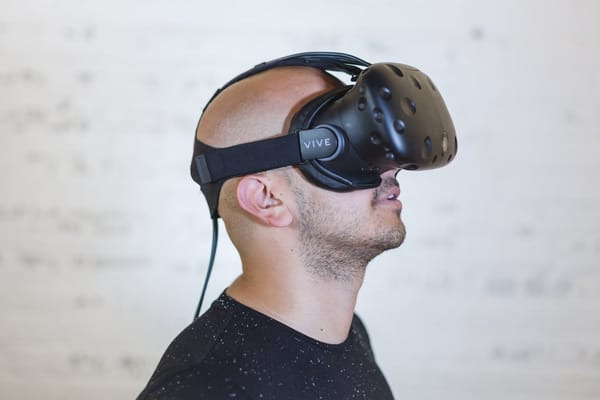On average, Americans are staring at screens 10 hours per day.
Ten. Hours you guys. That’s CRAZY.
But it seems totally legit because when you add up the Facebook scrolling, the Netflixing, the texting and emails and work and apps, we really do spend our ENTIRE lives online.
Bypassing the conversation about diversifying how we spend our time entirely (because holy can of worms), it’s no wonder that scientists and health professionals are discovering a strong and disturbing link between hormones and screen time.
Symptoms of hormonal imbalance can be wide and varied, but can include:
- Mood swings
- Weight fluctuations
- Unusual sweating
- Skin issues
- Hair loss or unusual growth
- Fatigue
- Loss of libido
If you’re crossing a few off that list mentally, there’s a good chance that something’s amiss with your own hormone balance. Here’s how screen time may be a factor in what’s going on with your hormonal makeup.

Serotonin Overload
There are two types of screen time: interactive and passive. These types affect our brains and biology in surprisingly different ways. TV falls into the category of passive screen time — we watch it, but we don’t participate, we just sit and get entertained.
This passive entertainment tells our brains to make serotonin, the happy hormone that makes us feel content. When we’re watching TV, our brains go into overdrive, pumping out serotonin like crazy, and so ensues the couch potato effect.
The problem is, too much of this artificial serotonin production makes our serotonin receptors less sensitive — we get harder to entertain in the natural world. Things that used to content us, like long drives or great books, are less enjoyable because our serotonin receptors are less sensitive.
This can result in moodiness and even depression that is crazy hard to shake without a solid few weeks of screen fasting.
Social Anxiety Could Be Linked to Too Much Serotonin
There are many different forms of anxiety, but anyone who suffers from it will tell you that social anxiety is a breed all its own. Unlike other types of anxiety, it appears that too much serotonin in your body can actually exacerbate the problem, not help.
You’d think that serotonin would help us to relax enough to enjoy social situations, but social anxiety seems to stem from an issue keeping up with the brain power required to process social situations. This isn’t to say that people who suffer from social anxiety lack intelligence, but rather, that an excess of serotonin could be keeping their brains from handling conversations with confidence.
Here’s why.
It turns out, socialization is one of the most complicated things your brain can do. It requires a level of focus, concentration, and problem-solving few other tasks are going to demand from you. You have to understand what’s being said, read body language, understand inflection and tone, and then all of the little social nuances that go with it.
It. Is. Exhausting.
And your brain can’t keep up if it’s constantly coasting on a serotonin high.
If you suffer from social anxiety, give a screen time fast a try for a few weeks — you may be surprised at the difference it makes.

Blocking Melatonin Production
Screens as a whole, whether they’re providing you with passive or interactive entertainment, all emit something called blue light. It’s being produced by something electronic, sure, but your brain processes it the same as daylight. This means when you’re staring at it too much, you’re going to mess with your sleep cycles.
“Just minutes of screen stimulation can delay melatonin release by several hours and desynchronize the body clock. Once the body clock is disrupted, all sorts of other unhealthy reactions occur, such as hormone imbalance and brain inflammation.”
— Victoria Dunckley, M.D., Psychology Today
Blue light actually blocks the production of melatonin, the sleep hormone. If you have to decompress every day with Netflix or work late at night, always make sure to at least wear blue light blocking glasses while you do it.
These glasses literally block those blue light rays and keep them from messing with your melatonin, so you can still get a good night’s sleep if you have to cram for an exam before bed.
Get Blue Light Blocking Glasses

Video and Computer Games Release Stress Hormones
Okay, now on to interactive screen time. This includes things like video games — anything you have to participate in. Even social media counts, and it plays a big part in how your brain processes hormones.
During these activities, our stress hormone cortisol gets elevated. Designed by nature to get us on the ball in situations that require us to interact with the outside world, an elevated cortisol level triggers the flight or fight response in us. Basically, it puts you on edge.
The problem is, when you engage too much in social media or video games, your cortisol switch gets flipped constantly, resulting in irritability, difficulty sleeping, and all kinds of health problems related to stress, like migraines and muscle aches.
If you’re feeling edgy and irritable and it doesn’t seem to correlate with anything in particular, start by dialing back video games and social media. Over the course of a few weeks, you may find you feel a lot less tense — you can thank your lower cortisol levels for that.
Have you noticed a difference in your health and happiness when you adjusted your electronics use?










Leave a reply
You must be logged in to post a comment.